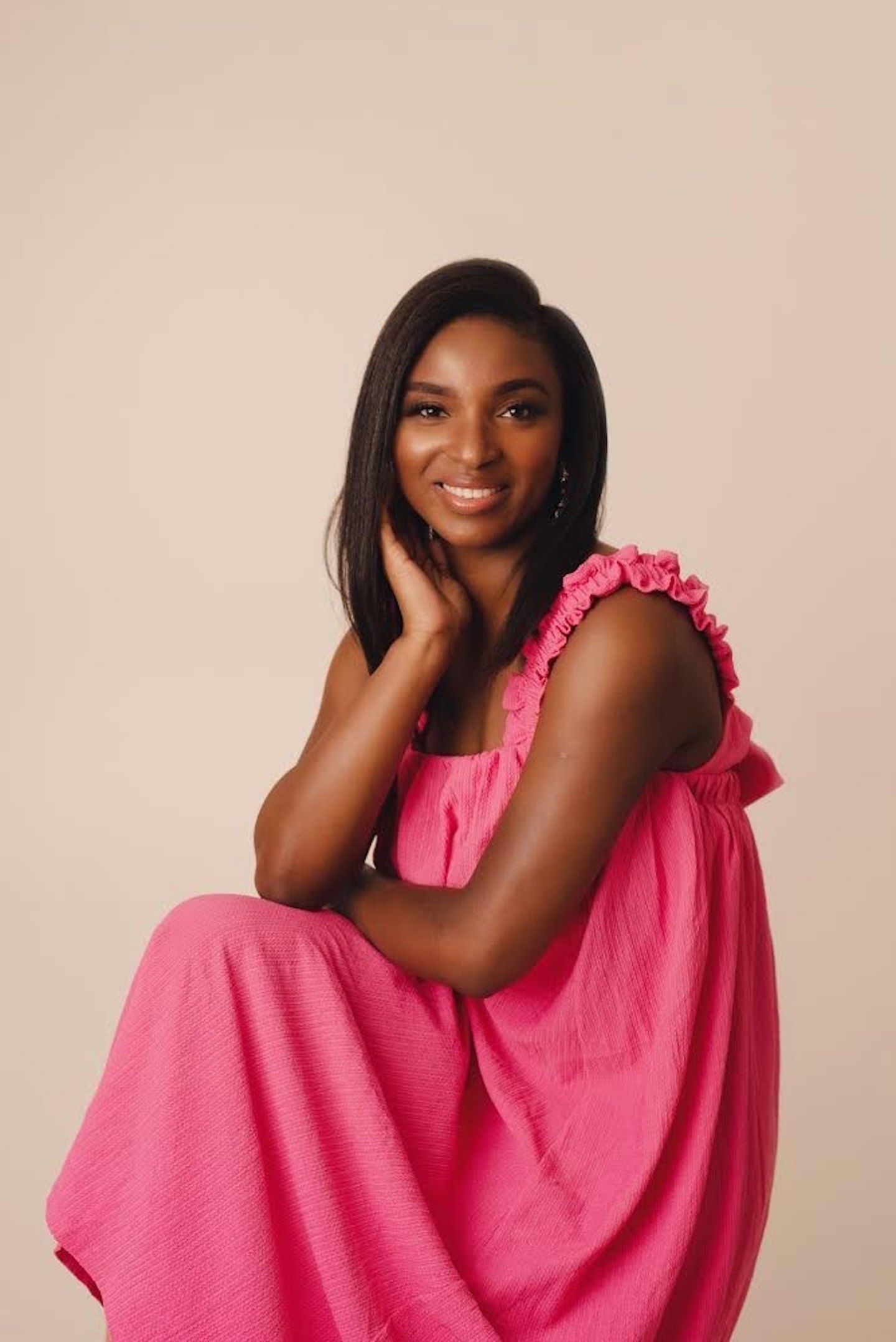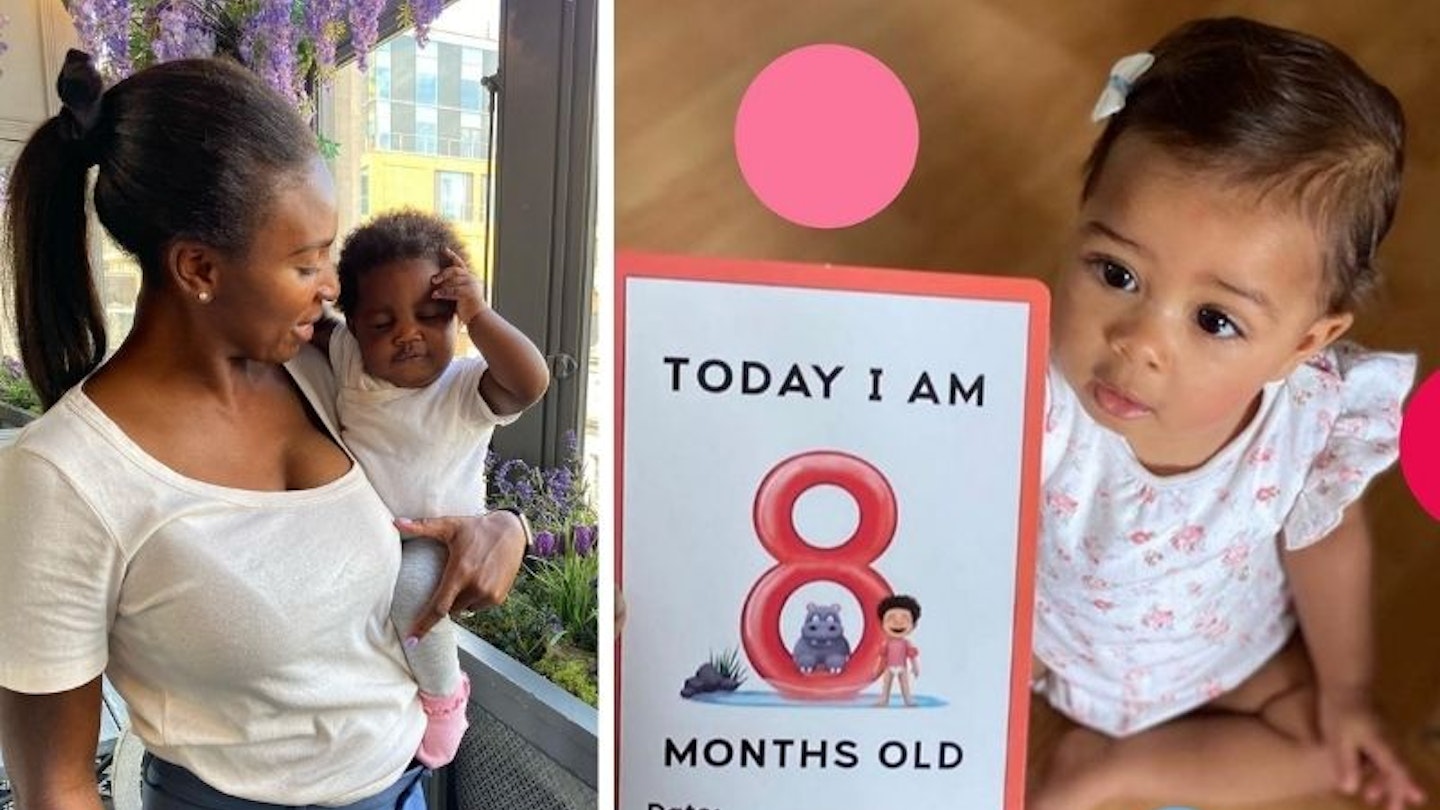Black History Month, celebrated in October in the UK, is more important than ever this year.
We are proud to be celebrating Black History Month here at Mother&Baby. We recently spoke with Mother of Two and Creator and Founder of Colour Celebrations, Deborah Ajaja, about what Black History Month, culture and heritage means to her and why it is important for our children to be aware of their roots.
Deborah started Colour Celebrations back in 2018 to offer luxury gifting for black and mixed-race babies. She began the company after the birth of her first child when she realised that there was a huge gap in the market for representative, fun and vibrant gifts for babies of colour.

This month Colour Celebrations are running the #colourfulmotherhoodcampaign, which is a series of videos and insightful discussions about the motherhood experience of raising black and mixed-race children.
As a black mother she believes it is important to raise awareness and shine a light on the black motherhood experience. All too often, it is betrayed in a negative light, and that’s not the case for a lot of us motherhood is colourful.
“Motherhood is rich and jampacked, overflowing even, with culture and heritage with our backgrounds and our desires, which we’ve carried from our experiences and our heritage into the way that we want to parent our children,” says Deborah.
She has produced a feature film about what colourful motherhood is, where she is talking to real life mums for raising black and mixed-race children.
One of the core values of Colour Celebration is intentionally celebrating babies’ colour, culture and heritage boldly and proudly. Deborah and the team behind this beautiful campaign, intends to celebrate this month with the #colourfulmotherhoodcampaign.
She urges you to join in the discussions and watch the videos to really understand those experiences and also to share your own experiences because it’s all about us as a community.
Here's the Colourful Motherhood campaign’s feature film.
In the video, we see a number of mums share what they love about their colourful motherhood
Lolo
“I feel like my babies are so blessed to have a blend of two different cultures I genuinely feel like that allows them to just be able to explore different things and not be Judge mental.”
“I also feel like there’s a difference between raising girls and raising black girls.”
Bethany
“being of dual heritage is not something that either of us have experienced as his parents. It’s important for a family identity.”
“it was important for us to celebrate Elijah’s milestones using a product that reflected him and his heritage.”
Leticia
“When I was a child I had to constantly stretch my imagination to be able to see myself positively reflected in Khatun, illustration books, movies, TV shows. But my son will not need to look that far to be able to see myself represented.”
Funmi
“To provide him with his support guidance and knowledge that they need to form their own identity and to be more open-minded to the world that is changing around us.”
Sian
"Heritage is something that is told to you as opposed to something that you experience. I think it is important for us to take him back home so to speak, so he can experience his heritage and culture for him self and be proud of it. I have had fears over raising a male child of colour raising a little boy just in terms of there is a lot of things that can be put on them at a young age they are often stereotyped from people at around them, school.”
Dr. Tiffany Ofili Porter
"We are minorities and it’s sometimes difficult to see images of positivity and inclusivity and that is one reason why I do love the milestone cards by colour celebration because they strive to help alleviate that gap in representation.”
With several events in 2020 and the Black Lives Matter movement, institutionalised racism has been laid bare in 2020 with the revelation of some shocking statistics.
Black mothers being 5 times more likely to die during pregnancy and childbirth.
1 in 4 black males are being stopped and searched. Inspector Charles Ehikioya, a black police inspector being one of those man being stopped and searched, as reported by the BBC.
Only 39.1% of young black boys are likely to pass their GCSEs, which is largely related to the stereotypical perception of these young black boys by their educators.
Black History Month is a time in which black excellence can be recognised and celebrated, in the hope to uplift black people.
Prime Minster, Boris Johnson says, “For countless generations people of African and Caribbean descent have been shaping our nation’s story, making a huge difference to our national and cultural life and helping to make Britain a better place to be. It is this contribution of black British people that I am proud to be celebrating Black History Month this October.”
Why positive representation of black people is important
Dr.Tiffany Ofili Porter says, “Representation is important because if you can see someone of your colour doing and achieving great things, you will know it is attainable for yourself.”
Black History, the way it has been taught in our schools has not offered black children the opportunity to see many role models, which means the image they have of themselves comes from a long line of trauma. It’s all about slavery and then a repeat of a handful of key figures that have paved the way, through lots of hardship fighting for equality. This leaves a lasting image that black people are not as good as white people.
I once had one of my students say to me, “Miss, it’s just because black people are not as clever as white people. That is why there has only been one black president.” I was a little bit stunned at the bravado that came with this comment, but I did feel that it is not this white child’s fault that he believes this. His educators both in school and at home had not offered him a view of clever, intelligent, powerful black people.
Black People who have invented and created amazing things such as such as:
-
Dr Shirley Jackson, an American physicist whose experiments paved the way for numerous developments in the telecommunication space; the touch tone telephone, caller ID and the fibre-optic cable.
-
Marie Van Brittan Brown a black nurse who invented the first home security system.
-
Otis Boykin a black inventor whose contribution so science has saved countless lives because of the improvements he made to pacemakers after losing his mother to heart failure.
-
Philip Emeagwali, who was forced to drop out of school at the age of 14 due to financial strains. He invented the world’s first super computer and is known as the “Bill Gates of Africa”.
Black people have a lower life expectancy because more of them live in areas of deprivation, as outlines by Public Health England, Health Equity Report.
The Office for National Statisticsexplain Employees in the Black African, Caribbean or Black British, Other and White Other ethnic groups on average earned 5% to 10% less than their White British counterparts.
This is to name but a few of the many statistics that suggest black lives have not mattered nearly half as much as they should.
A lot of black people will attest to the discomfort that comes with being black in a ‘white world’. A world where we are not represented in books, TV shows, on birthday cards, unless we are starting small businesses and creating these things ourselves; where we have to wear plasters that stick out like a sore thumb because they are designed to blend in and be discreet on white skin. We are in constant discomfort because White Lives Matter and Black Lives do not.
Black History Month is an important month for black people to be reminded of their history and celebrated for who they are. It’s an opportunity for people of other colours and cultures to learn and celebrate too, not just for this month, but for all-year round.
You can find Deborah’s work at www.colourcelebrations.com where you can also purchase her baby milestone cards.
